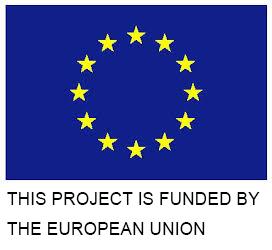Increased cooperation on immigrant integration before departure would benefit migrant-receiving countries in Europe and countries of origin, new MPI Europe policy brief finds
 BRUSSELS — Whilst the European Union and member states have invested significant resources over the past decade to provide integration services such as language instruction and job skill-matching support to migration candidates at the earliest stage in the migration process, these pre-departure measures generally have not fully realized their potential, a new Migration Policy Institute Europe brief finds.
BRUSSELS — Whilst the European Union and member states have invested significant resources over the past decade to provide integration services such as language instruction and job skill-matching support to migration candidates at the earliest stage in the migration process, these pre-departure measures generally have not fully realized their potential, a new Migration Policy Institute Europe brief finds.
There is growing consensus that pre-departure programs may be of benefit at both ends of the migration trajectory: Offering positive impacts on immigrants’ labor market outcomes at destination whilst also enhancing their capacity to actively contribute to development in their country of origin. Pre-departure measures such as training, orientation programs and assistance in the recognition of foreign academic and professional credentials can be a prime policy tool to tackle some of the most entrenched obstacles to labor market integration.
Yet to date these measures have been largely small-scale in size and scope, and implemented in unilateral fashion, mostly by migrant-destination countries, the MPI Europe policy brief makes clear. The brief is part of the INTERACT research initiative co-financed by the European Commission, which is examining to what extent policies in EU member states and origin countries complement or contradict each other with regards to immigrant integration.
The brief, Improving migrants’ labour market integration in Europe from the outset: A cooperative approach to predeparture measures, argues that the absence of cooperation between origin and destination countries in the design and implementation of pre-departure measures limits their effectiveness in tackling labor market integration obstacles that occur prior to departure, during the transition phase and over the long term.
Cooperation is hampered by two structural challenges: (1) the increasingly multilayered governance of immigrant integration in EU member states and resulting proliferation of policy actors, and (2) the misalignment of portfolios—with integration largely the bailiwick of foreign affairs-focused bureaucracies in origin countries and internally-focused ministries and departments in destination countries.
A third factor—differing objectives—also comes into play. For destination countries, their pre-departure integration focus is typically on improving migration candidates’ readiness for integration, including by prioritizing support to skilled and highly skilled migrants, at times in sectors and occupations where migrant-sending countries may also face skills shortage. Meanwhile, origin countries often aim their efforts primarily at supporting the deployment of low- to medium-skilled workers for whom domestic jobs may not exist, and ensuring continuing ties to encourage their development contributions.
The policy brief reviews a number of promising examples of cooperative pre-departure measures at government levels in both sending and receiving countries, some with private-sector involvement. Examples discussed include German pilot programs with Tunisia, China and the Philippines, among others; a Portugal-Cape Verde initiative; and a Spain-Colombia program.
"For EU member states grappling to support durable economic recovery and to strengthen social cohesion amid shrinking working-age populations and stagnating economies, realizing immigrants’ potential has become more urgent than ever," said MPI Europe policy analyst Maria Vincenza Desiderio, who co-authored the brief.
The authors offer a number of recommendations, including increased cooperation between governments at origin and destination in the design of such pre-departure programs; flexibility in design to meet employer demand and adjust to changing trends in the labor markets in sending and receiving countries; and ensuring a development-sensitive approach that recognizes origin countries’ needs. They also suggest countries consider a more innovative long-term approach: strengthening structural cooperation between origin and destination countries in broader policy areas beyond migration and integration, notably in establishing skills partnerships in the areas of education and vocational training.
Read this brief at: www.migrationpolicy.org/research/improving-migrants-labour-market-integration-europe-outset-cooperative-approach.
# # #
MPI Europe provides authoritative research and practical policy design to governmental and nongovernmental stakeholders who seek more effective management of immigration, immigrant integration and asylum systems, as well as better outcomes for newcomers, families of immigrant background and receiving communities throughout Europe. MPI Europe also provides a forum for the exchange of information on migration and immigrant integration practices within the European Union and Europe more generally. For more, visit www.mpieurope.org.

